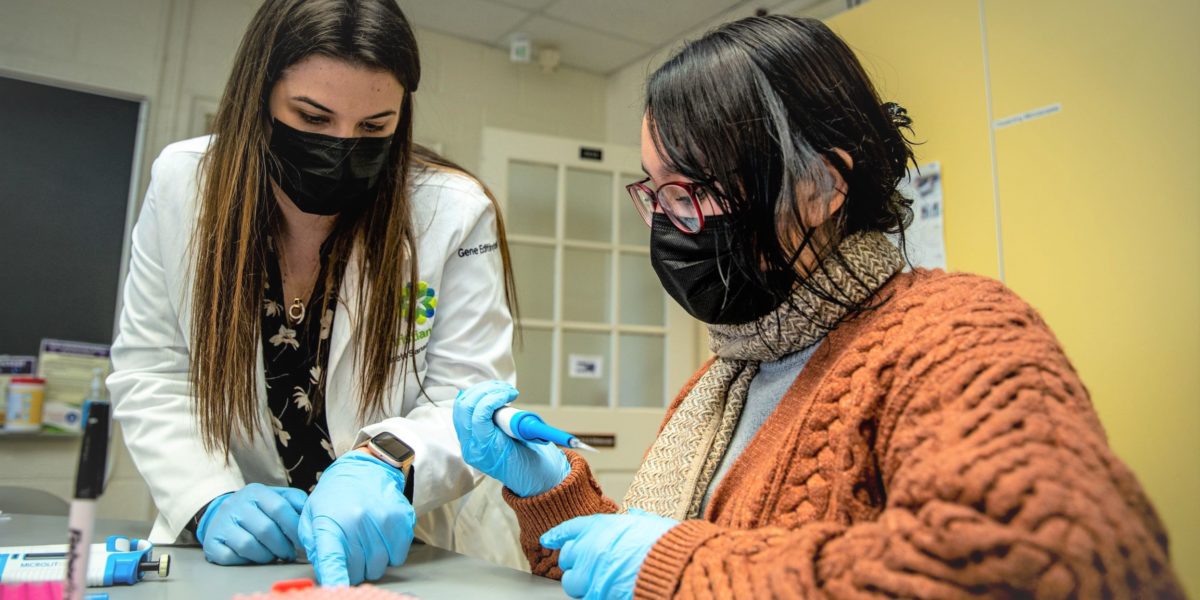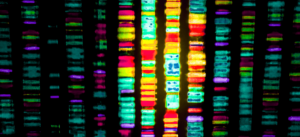ChristianaCare’s Gene Editing Institute is expanding its educational outreach to high schools and colleges with its groundbreaking CRISPR in Box™ Educational Toolkit to increase the understanding of one of the most powerful biomedical technologies that is closer each day to impacting the way diseases are treated.
This week, students at Salem Academy in Winston Salem, North Carolina, experienced access to CRISPR in a Box™, a new educational resource that inspires interest in gene editing. Salem Academy, exclusive to girls in grades 9-12, became the first school in North Carolina to offer the workshop as it pivots its academic focus to an academy in STEAM (Science, Technology, Engineering, Art and Math).
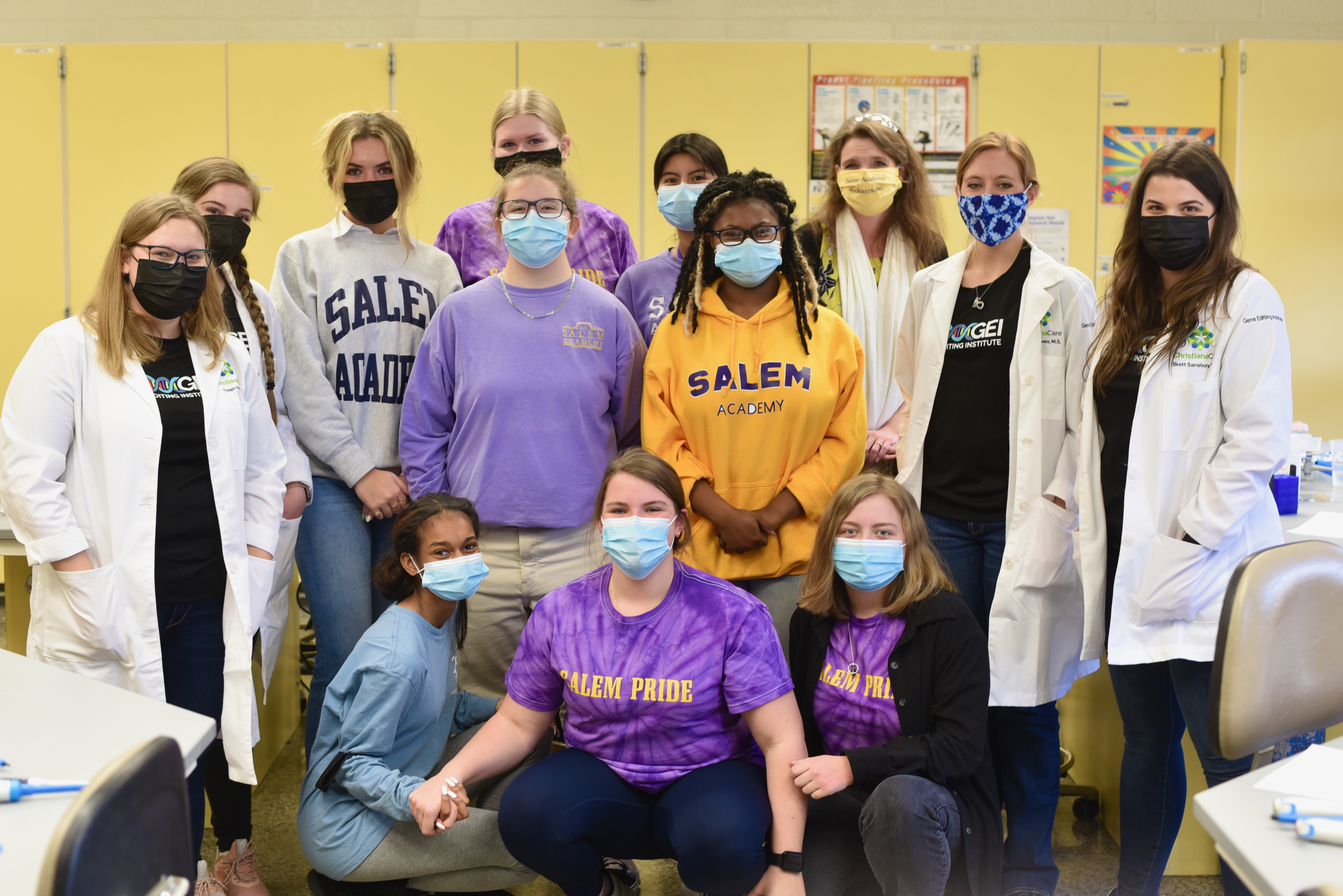
“It has been incredible to see the delight in the eyes of the intelligent young women at the Salem Academy as they discover the wonder and power of CRISPR,” said Amanda Hewes, MS, education program manager for the Gene Editing Institute, which developed CRISPR in a Box™.
Getting CRISPR in a Box™ for Your Classroom
Teachers and schools interested in purchasing CRISPR-in-a-Box™ kits from distributors can do so at the Gene Editing 360™ webpage.
“It is our goal to expose the world’s young minds to the latest biomedical tools that will ultimately change the way we treat and cure disease, and to encourage the growth of the next diverse generation of genomic scientists and leaders.”
There is growing interest in CRISPR in a Box among high schools, community colleges and universities with the unique, hands-on learning experience the toolkit provides.
“This experience has meant a great deal to me and allowed me to experience hands-on, not just taking notes in a class,” said Kayla Parker, Salem Academy sophomore, “It has helped me figure out what I want to do in the future.”
Growing interest in CRISPR in a Box™
The gene editing tools in CRISPR in a Box™ are designed based on the pioneering discoveries of the Gene Editing Institute that are currently being used to explore next-generation medical therapies and diagnostics for diseases including cancer and sickle-cell anemia.
All materials in the existing kit are safe, synthetic materials. There are no live cultures or viruses involved. The kit is meant to provide a hands-on demonstration of CRISPR’s capabilities and not allow for manipulations of living organisms.
Students will be able to see the results of their gene editing experiment.
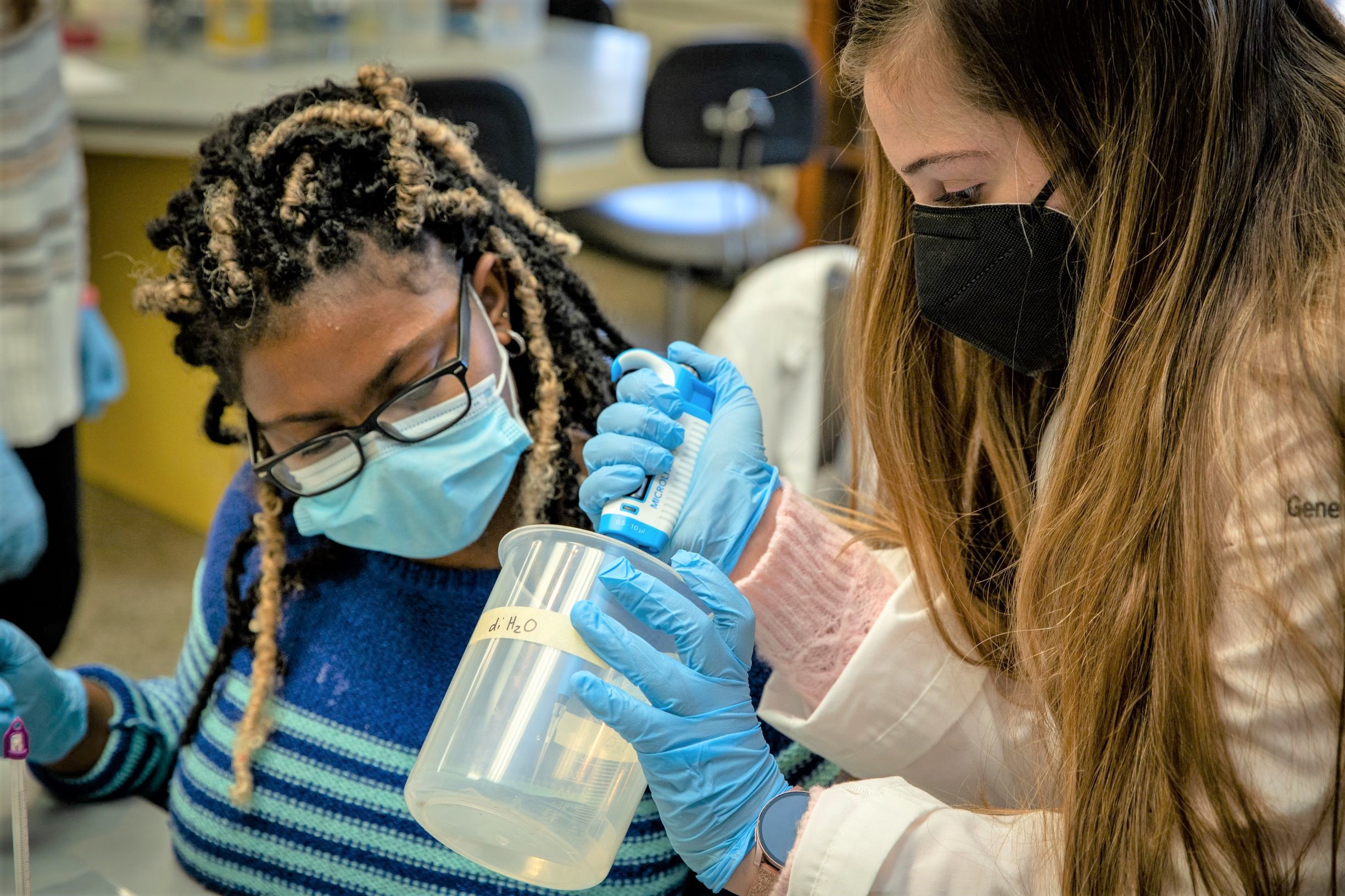
“Our partnership with ChristianaCare and the Gene Editing Institute will create new and innovative possibilities for our aspiring women scientists to learn cutting edge science and explore a future career in biotechnology, science and medicine,” said Summer McGee, Ph.D., president of Salem Academy and College.
“This unique experience is exactly what sets Salem Academy apart as a national leader in building the next generation of women leaders in STEAM.”
Several Delaware high schools are using the kit in science classes, including St. Georges Technical High School, Appoquinimink High School, William Penn High School and Brandywine High School. Delaware Technical Community College has been using the protocol to train 70 community college faculty from over 35 colleges across the United States.
In Philadelphia, Drexel University used the kit in its summer academy; Montgomery County Community College has used the kit in science courses; and the Franklin Institute will use it in upcoming STEM Scholars science sessions with students in grades 9-12 who are passionate about science, technology, engineering, and math.
Gene Editing Institute’s unique approach
The Gene Editing Institute’s Founder, Executive Director and Chief Science Officer Eric Kmiec, Ph.D., has led the Gene Editing Institute with a goal to discover ways to improve how CRISPR, the gene editing tool, performs as the Institute plans for the first-ever use of gene editing in solid tumors with an anticipated lung cancer clinical trial.
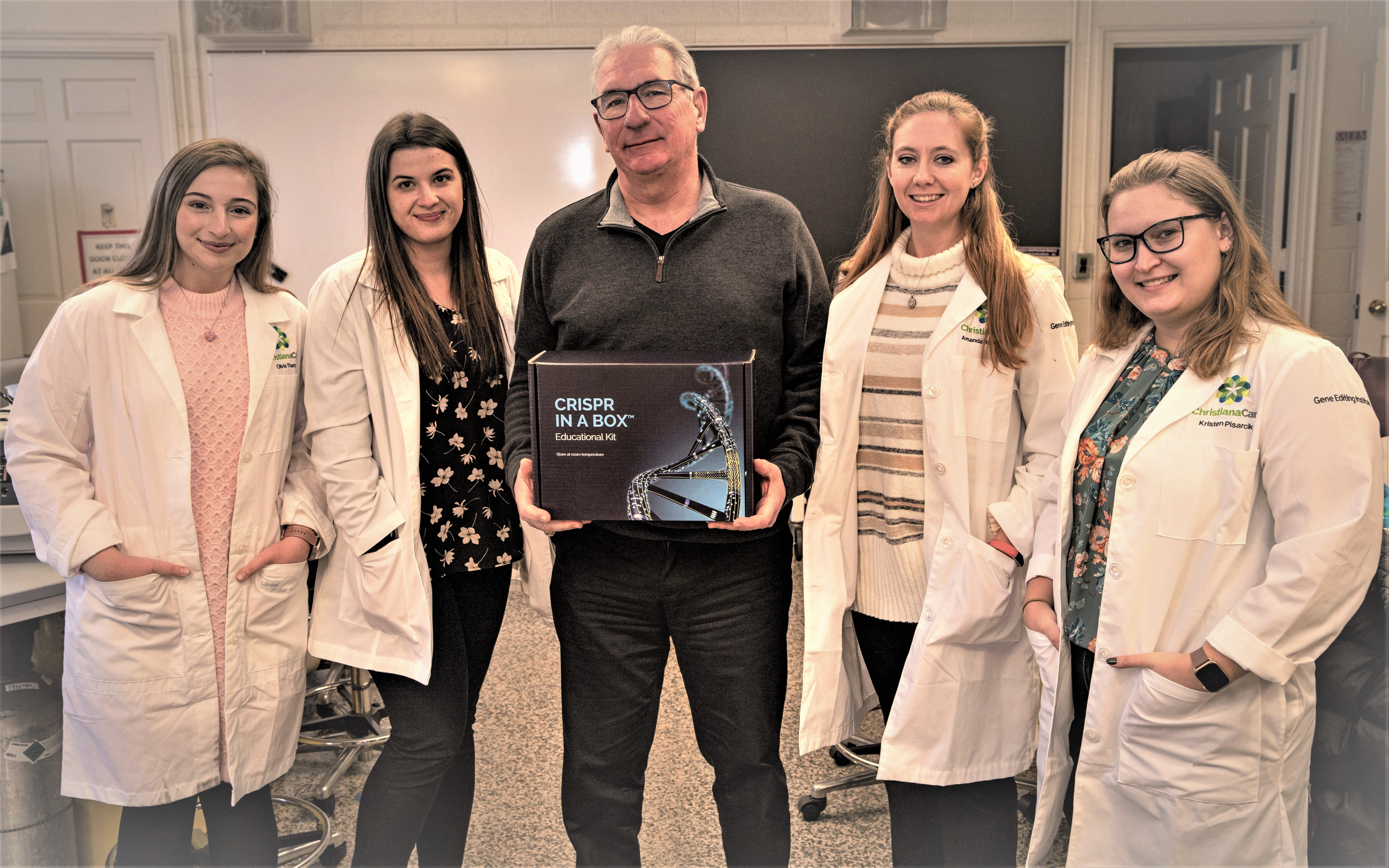
The Institute is unique among the nation’s leading gene editing research organizations in that it exists within a community-based health system. This unique perspective has helped the Gene Editing Institute to maintain a strong focus on ensuring equity in gene editing research and access to future therapies that harness CRISPR technology.
One of the Gene Editing Institute’s missions is to help diversify the gene editing profession and make sure when CRISPR’s hope is realized that all patients, whether in academic hospital settings or community hospitals, have access to the latest and best technologies. Teachers, students and parents can learn more about what it’s like to work in the field by visiting the Gene Editing 360™ webpage.
“With the CRISPR technology we have today, we are at the forefront of medical discoveries like no other time in history,” said Dr. Kmiec.
“We need to ensure that the next generation of medical technologies is developed equitably to serve all people and to remove obstacles to ensure our work benefits women, people of color and others who have too often been left behind or shut out of science.”
Part of this mission is to teach the next generation of scientists about CRISPR gene editing technology and to make it available to underrepresented communities.
About ChristianaCare’s Gene Editing Institute
The Gene Editing Institute, a worldwide leader in CRISPR gene editing technology and the only institute of its kind based within a community health care system, takes a patient-first approach in all its research to improve the lives of people with life-threatening disease.
Since 2015, researchers at the Gene Editing Institute have been involved in several ground-breaking firsts in the field, including the development of the first CRISPR gene editing tool to allow DNA repairs outside the human cell which will rapidly speed therapies to patients and a unique version of CRISPR called EXACT that reduces the number of off-target edits to other areas of the genome, which is vital for further research and patient applications. Its researchers are currently developing a patient trial for lung cancer using CRISPR technology.
